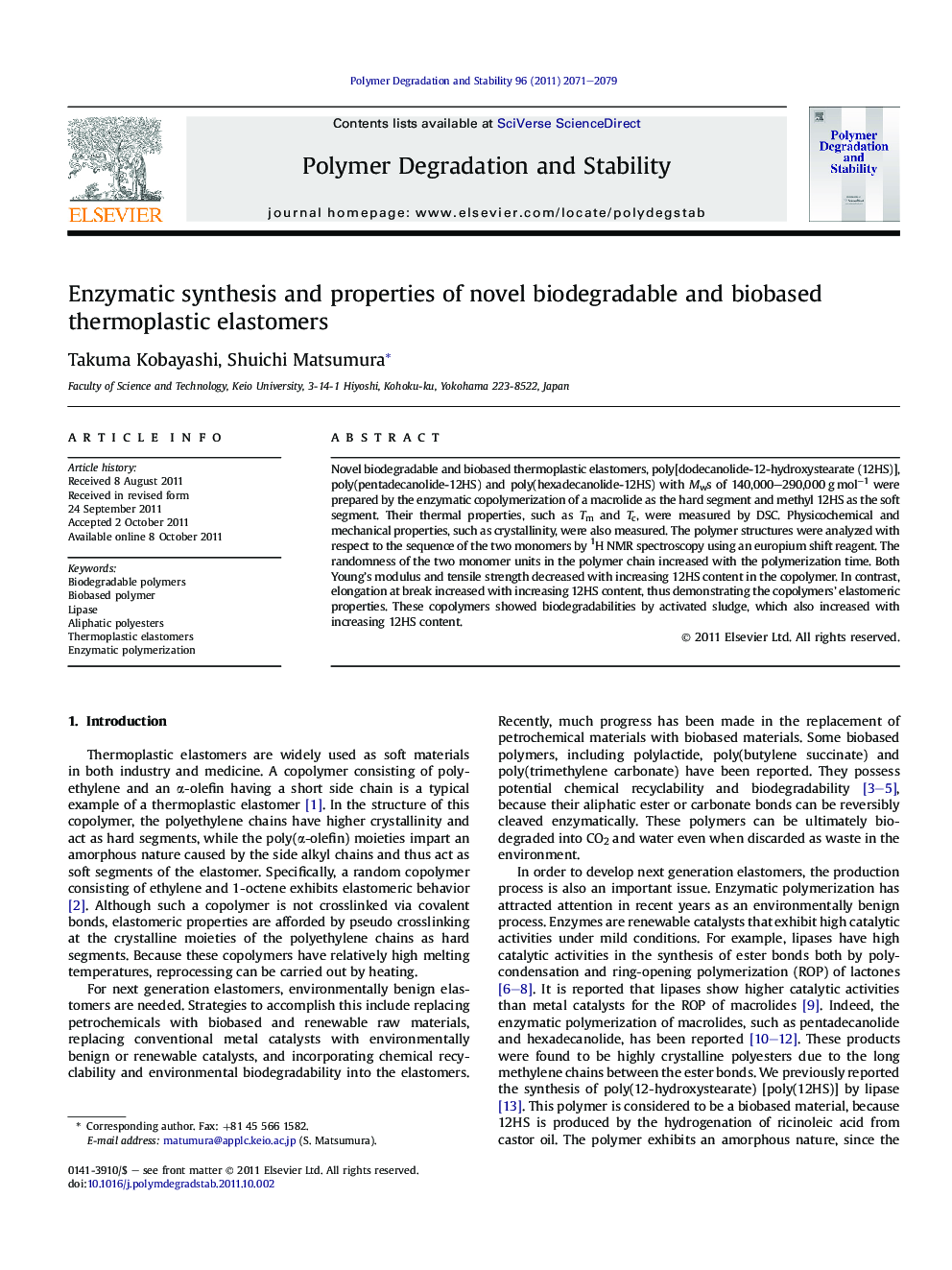| Article ID | Journal | Published Year | Pages | File Type |
|---|---|---|---|---|
| 5203233 | Polymer Degradation and Stability | 2011 | 9 Pages |
Abstract
Novel biodegradable and biobased thermoplastic elastomers, poly[dodecanolide-12-hydroxystearate (12HS)], poly(pentadecanolide-12HS) and poly(hexadecanolide-12HS) with Mws of 140,000-290,000 g molâ1 were prepared by the enzymatic copolymerization of a macrolide as the hard segment and methyl 12HS as the soft segment. Their thermal properties, such as Tm and Tc, were measured by DSC. Physicochemical and mechanical properties, such as crystallinity, were also measured. The polymer structures were analyzed with respect to the sequence of the two monomers by 1H NMR spectroscopy using an europium shift reagent. The randomness of the two monomer units in the polymer chain increased with the polymerization time. Both Young's modulus and tensile strength decreased with increasing 12HS content in the copolymer. In contrast, elongation at break increased with increasing 12HS content, thus demonstrating the copolymers' elastomeric properties. These copolymers showed biodegradabilities by activated sludge, which also increased with increasing 12HS content.
Keywords
Related Topics
Physical Sciences and Engineering
Chemistry
Organic Chemistry
Authors
Takuma Kobayashi, Shuichi Matsumura,
